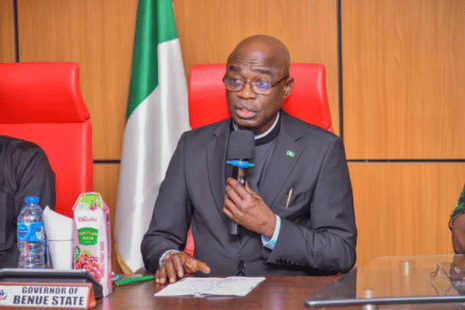Governor Hyacinth Alia of Benue State confirmed on Sunday that 59 persons were killed in Yelewata, following a violent attack by suspected herdsmen believed to be from Nasarawa State. The attack, which occurred in the early hours of Saturday, has heightened concerns over security and persistent clashes between herders and local communities in the region.
Addressing journalists at the Government House, Alia stated that the casualty figures are based on physical headcounts conducted by security agencies in collaboration with the families of the victims. He emphasized that the situation remains tense, and efforts are ongoing to contain the violence and apprehend those responsible. Among the deceased were military and civil defence personnel who fought to defend Yelewata during the attack, showcasing the level of resistance put up against the assailants.
The attack on Yelewata, a border town in Benue State, is part of a broader pattern of violence linked to herder-farmer conflicts, which have persisted across Nigeria’s Middle Belt and northern regions for several years. Many of these conflicts are fueled by disputes over land and grazing rights, compounded by criminal activities such as cattle rustling and kidnappings.
Local residents and officials have expressed their fears over the resurgence of violence in the area. Community leaders have called for increased security and swift action from federal authorities to restore peace and prevent further loss of life. The Nigerian government has previously deployed military personnel and initiated dialogue efforts to address the ongoing herder-farmer conflicts, but violence continues to erupt in various parts of the country.
This latest incident underscores the urgent need for sustainable solutions to the conflicts, including dialogue, land reforms, and enhanced security measures. The Benue State government has also urged residents to remain calm and cooperate with security agencies as investigations continue.
As the nation grapples with these recurring crises, many Nigerians are calling for comprehensive strategies to address the root causes of violence in the region and to ensure the safety of communities affected by these conflicts.
